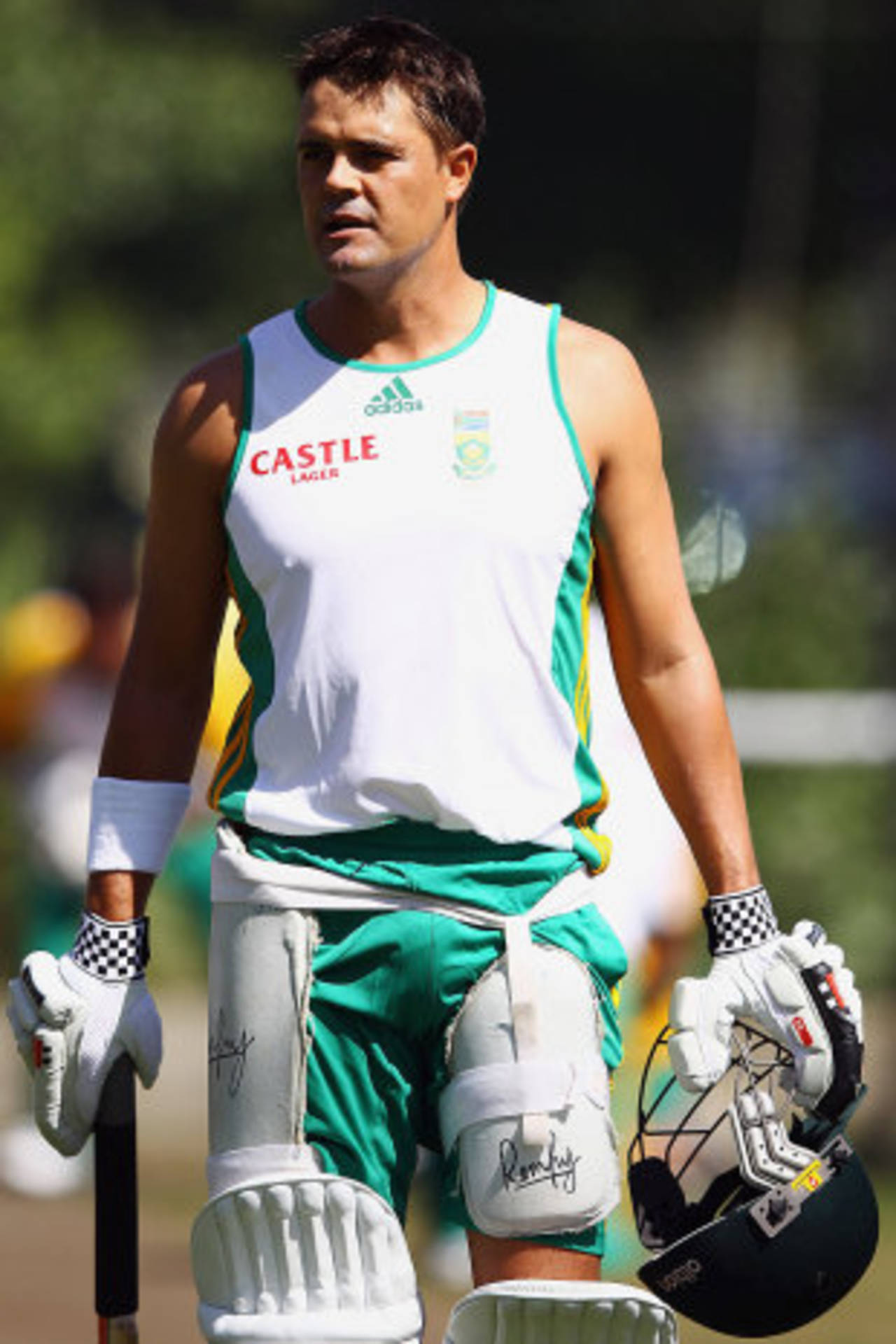Two days before the start of the first Test, the Gabba pitch is a strip of green. Its characteristic and colour could be toned down in the 48 hours before the Test starts but it should still be the scene of first-hour fireworks, if not first-day sparks. The batsmen will have as important a role to play as the pacemen and that's the way Jacques Kallis sees it. "Both bowling attacks are up there with the best in the world and it could end up being a tough battle for the batters," he said. "The side that doesn't crumble against the pressure will be set up well."
With South Africa's extended seven-man line-up, they may seem the side better equipped to put up that wall but Ricky Ponting was hardly convinced. "I don't see their batting line-up being much stronger than India's was last year."
Considering that India lost the series 4-0, scoring 400 just once and passing 250 on only two other occasions, Ponting was obviously taking a dig. Add to that that India were dismissed for less than 200 four times and he may have been just plain insulting. Of course, he could have simply been referring to the fact that India, like South Africa, also had a seven-strong batting line-up (save for the fourth Test when MS Dhoni had to sit out) and most of them consistently failed.
Ponting's opinion may offend South Africa, but it stings of some sort of truth - their obvious weak link.
Jacques Rudolph at No.6 has not performed to the standard of the rest of the line-up and it is understood that he has been told his pressure to keep his place is not far away.
Since his Test comeback a year ago, Rudolph has scored three half-centuries and a hundred in 16 innings, which does not make it sound like his head is on the block. The circumstances, more than statistics, will explain. Rudolph went seven innings before he reached a milestone and his approach had gone from fairly sedate to overly and unnecessarily attacking in that time. His unbeaten 51 came against Sri Lanka in
Cape Town, after Alviro Petersen and Jacques Kallis had both scored hundreds and while AB de Villiers was going berserk at the other end.
In other words, those runs came in stress-free fashion and not when the team was in trouble. The only time Rudolph has produced in that situation was when he came in with South Africa at 90 for 4 in
Dunedin in March and ground out 52 in tough conditions. His century in the second innings was also once a platform had been set by twin hundreds from higher up. At
Headingley, he made 69 as an opener but had the settled Graeme Smith on the other side.
With his mettle proving pliable when the heat is turned up, Rudolph's place is in question on two fronts. Either South Africa will look to go back to a more traditional six man line-up and play the specialist wicketkeeper Thami Tsolekile to relieve the burden on AB de Villiers' back, or they will persist with the seven-man approach. Whichever way they go, Rudolph will be first in the firing line.
JP Duminy, who currently bats at No.7, has admitted that he will "get more opportunity," if he is able to bat one place higher and seems deserving of the spot. Duminy, unlike Rudolph, has taken the chances he has been presented with. In
Wellington, when he was included because Kallis had a stiff neck, he scored a hundred and he made an important 61 at
Lord's in August.
Should they drop a batsman for de Villiers' sake, it is likely Duminy will replace Rudolph. If they continue to operate with seven though, there is someone else knocking on the door. Faf du Plessis is part of the Test squad, played in the warm-up match at the SCG and has enjoyed resurgence in his first-class game.
When du Plessis moved up the order for the Titans from No.7 to No.5 last season, he scored 599 runs in four matches and showed a penchant for spending time at the crease. His overall first-class average is 38.30, which may not see him as an automatic pick in a Test team but Rudolph's average since his comeback has been 37.14. There's little to choose between the two apart from temperament and technique and Rudolph can be certain his will be tested fully in Australia.
"Short balls are an area that we think we can really attack them," Ponting said. Rudolph was one of the batsmen the England attack also targeted with bouncers and on occasion, he succumbed. Kallis was not overly concerned by that. "The nature of Australian wickets with pace and bounce mean that the short ball will be used but invariably it's balls in good areas that tend to get batters out," he said.
That can only mean a thorough examination of anyone who walks to the crease with willow in hand will be conducted over this series and the Gabba's surface - green or not - will be a good place to start.
